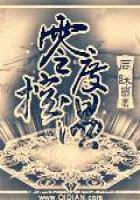Conclusion.
Correlation of the Tendencies to Increasing and to Diminishing Return 1.At the beginning of this Book we saw how the extra return of raw produce which nature affords to an increased application of capital and labour, other things being equal, tends in the long run to diminish.In the remainder of the Book and especially in the last four chapters we have looked at the other side of the shield, and seen how man's power of productive work increases with the volume of the work that he does.Considering first the causes that govern the supply of labour, we saw how every increase in the physical, mental and moral vigour of a people makes them more likely, other things being equal, to rear to adult age a large number of vigorous children.Turning next to the growth of wealth, we observed how every increase of wealth tends in many ways to make a greater increase more easy than before.And lastly we saw how every increase of wealth and every increase in the numbers and intelligence of the people increased the facilities for a highly developed industrial organization, which in its turn adds much to the collective efficiency of capital and labour.
Looking more closely at the economies arising from an increase in the scale of production of any kind of goods, we found that they fell into two classes -- those dependent on the general development of the industry, and those dependent on the resources of the individual houses of business engaged in it and the efficiency of their management; that is, into external and internal economies.
We saw how these latter economies are liable to constant fluctuations so far as any particular house is concerned.An able man, assisted perhaps by some strokes of good fortune, gets a firm footing in the trade, he works hard and lives sparely, his own capital grows fast, and the credit that enables him to borrow more capital grows still faster; he collects around him subordinates of more than ordinary zeal and ability; as his business increases they rise with him, they trust him and he trusts them, each of them devotes himself with energy to just that work for which he is specially fitted, so that no high ability is wasted on easy work, and no difficult work is entrusted to unskilful hands.Corresponding to this steadily increasing economy of skill, the growth of his business brings with it similar economies of specialized machines and plant of all kinds; every improved process is quickly adopted and made the basis of further improvements; success brings credit and credit brings success; credit and success help to retain old customers and to bring new ones; the increase of his trade gives him great advantages in buying; his goods advertise one another, and thus diminish his difficulty in finding a vent for them.The increase in the scale of his business increases rapidly the advantages which he has over his competitors, and lowers the price at which he can afford to sell.This process may go on as long as his energy and enterprise, his inventive and organizing power retain their full strength and freshness, and so long as the risks which are inseparable from business do not cause him exceptional losses; and if it could endure for a hundred years, he and one or two others like him would divide between them the whole of that branch of industry in which he is engaged.The large scale of their production would put great economies within their reach;and provided they competed to their utmost with one another, the public would derive the chief benefit of these economies, and the price of the commodity would fall very low.
But here we may read a lesson from the young trees of the forest as they struggle upwards through the benumbing shade of their older rivals.Many succumb on the way, and a few only survive; those few become stronger with every year, they get a larger share of light and air with every increase of their height, and at last in their turn they tower above their neighbours, and seem as though they would grow on for ever, and for ever become stronger as they grow.But they do not.One tree will last longer in full vigour and attain a greater size than another; but sooner or later age tells on them all.Though the taller ones have a better access to light and air than their rivals, they gradually lose vitality; and one after another they give place to others, which, though of less material strength, have on their side the vigour of youth.
And as with the growth of trees, so was it with the growth of businesses as a general rule before the great recent development of vast joint-stock companies, which often stagnate, but do not readily die.Now that rule is far from universal, but it still holds in many industries and trades.Nature still presses on the private business by limiting the length of the life of its original founders, and by limiting even more narrowly that part of their lives in which their faculties retain full vigour.And so, after a while, the guidance of the business falls into the hands of people with less energy and less creative genius, if not with less active interest in its prosperity.If it is turned into a joint-stock company, it may retain the advantages of division of labour, of specialized skill and machinery: it may even increase them by a further increase of its capital; and under favourable conditions it may secure a permanent and prominent place in the work of production.But it is likely to have lost so much of its elasticity and progressive force, that the advantages are no longer exclusively on its side in its competition with younger and smaller rivals.















